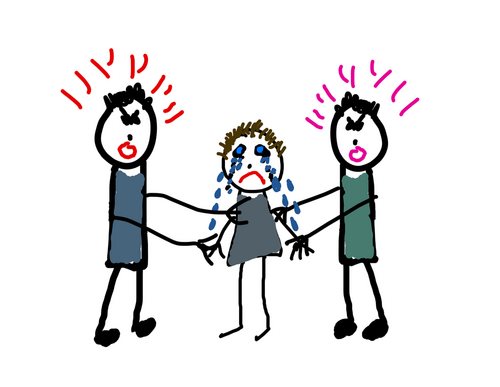Foreign Born Children and Health Care

Introduction
With an increasingly globalized world, the number of foreign-born individuals residing in the United States continues to grow each year. According to the Migration Policy Institute, 44.9 million immigrants live in the United States as of 2019, making up 13.7% of the total U.S. population. Among these immigrants, around 7.5 million are children, accounting for nearly 1 in 4 children living in the United States. When it comes to healthcare, these foreign-born children face unique challenges due to language barriers, cultural differences, and the lack of knowledge about the healthcare system in the United States.
In this article, we will explore the specific challenges that foreign-born children face when accessing healthcare in the United States. We will also look at current resources and initiatives aimed at improving healthcare access for these children.
Cultural Barriers
One of the more significant challenges for foreign-born children accessing healthcare is the cultural barriers they face. These barriers can include language differences, the lack of familiarity with U.S. healthcare systems, and the differing cultural attitudes toward healthcare.
Language Barriers
With over 350 languages spoken in the United States, language barriers can be difficult for foreign-born children to overcome, especially when it comes to healthcare. Children may not be able to accurately describe their symptoms or understand the language used by healthcare providers, leading to inaccurate diagnoses and treatments.
According to a 2015 survey by the Kaiser Family Foundation, nearly one-third of limited-English proficient (LEP) children and families reported having difficulty communicating with healthcare providers. Additionally, 42% of these children and families reported not receiving language assistance when needed, despite federal laws requiring healthcare providers to provide interpretation and translation services.
To overcome these language barriers, healthcare providers can utilize professional interpretation services and translated materials. Under the Affordable Care Act, healthcare providers are required to provide oral interpretation services for individuals with LEP, as well as translated written materials and notices.
Lack of Familiarity with U.S. Healthcare Systems
Foreign-born children may not be familiar with the healthcare system in the United States, including the types of services available and how to access them. This lack of knowledge can make it difficult for foreign-born children to access healthcare services, leading to delayed care and an increased risk of developing more severe health problems.
To overcome this issue, healthcare providers can aim to educate foreign-born families about the healthcare system in the United States. This can include providing them with information about the types of services available, how to access care, and what to expect during a medical visit. Additionally, healthcare providers can work to establish relationships with foreign-born communities to build trust and help families navigate the healthcare system more effectively.
Cultural Attitudes Toward Healthcare
Cultural attitudes toward healthcare can also be a barrier for foreign-born children accessing healthcare. Some cultures may view healthcare differently than in the United States, leading to differences in practices and beliefs.
For example, in some cultures, it is common to use traditional or home remedies to treat illnesses rather than seeking medical attention. Additionally, some cultures may prioritize preventative care over treatment, while others may feel that medical treatment is unnecessary unless symptoms are severe.
To overcome these cultural barriers, healthcare providers can work to understand and respect the cultural beliefs and attitudes of foreign-born families. Providers can also work to educate families about the importance of preventative care and the availability of medical treatments for various illnesses.
Healthcare Coverage
Another challenge that foreign-born children face when accessing healthcare in the United States is lack of healthcare coverage. While some foreign-born children may qualify for government-sponsored healthcare coverage, many may not be eligible due to immigration status or other factors.
For example, noncitizen immigrants who are not lawful permanent residents are often ineligible for most types of government-sponsored healthcare coverage, including Medicaid and the Children’s Health Insurance Program (CHIP).
According to a 2019 report by the Kaiser Family Foundation, among uninsured children in the United States, approximately 45% were estimated to be LEP or Hispanic, and nearly 70% were estimated to be low-income.
To overcome these coverage barriers, healthcare providers can work to identify and connect uninsured foreign-born children with local resources that can provide healthcare coverage or financial assistance. Providers can also work to advocate for policies that expand healthcare coverage to all children, regardless of immigration status.
Access to Care
Even when foreign-born children have healthcare coverage, they may still face challenges accessing healthcare services. These access barriers can include transportation issues, lack of available healthcare providers in their communities, and long wait times for appointments.
Transportation Issues
Transportation issues can be challenging for foreign-born children and their families, particularly in rural or remote areas. Lack of access to transportation can limit their ability to receive preventative care or seek medical attention when they need it.
To overcome transportation barriers, healthcare providers can work with local transportation providers to offer discounted or free transportation services for medical appointments. Providers can also explore alternative methods of providing healthcare, such as telehealth services that can be accessed remotely.
Availability of Healthcare Providers
Foreign-born children may face challenges accessing healthcare services if there is a lack of available healthcare providers in their communities. This can be a particular issue in areas with a high population of foreign-born individuals, as there may not be enough healthcare providers who speak the language or are familiar with the cultural needs of these communities.
To overcome these provider shortages, healthcare providers can work to increase the number of providers who are trained to work with foreign-born children and families. Providers can also work to establish relationships with community organizations and advocates to identify and address the healthcare needs of foreign-born communities.
Long Wait Times
Long wait times for medical appointments can be a barrier for foreign-born children accessing healthcare. These long wait times can delay care and lead to severe health problems if left untreated.
To overcome long wait times, healthcare providers can work to implement scheduling policies that prioritize urgent medical needs for foreign-born children and families. Providers can also explore alternative methods of providing healthcare services, such as same-day appointments or walk-in services.
Conclusion
Foreign-born children face unique challenges when accessing healthcare in the United States, including cultural barriers, lack of healthcare coverage, and difficulty accessing care. To overcome these challenges, healthcare providers must work to address the specific needs of foreign-born children and their families, such as providing language assistance, educating families about the healthcare system in the United States, and identifying and addressing the healthcare needs of their communities.
By working to improve healthcare access for foreign-born children, healthcare providers can help improve the health outcomes for these vulnerable populations and promote greater health equity in the United States.
As a result of the United States facing financial crisis and suffering from a lack of accessible health care, a
large percentage of the American public disagree with an immigration policy that allows illegal immigrants to have access to subsidized health care. While illegal immigrants are not legally entitled to many of the forms of health care citizens can get, they sometimes rely heavily on state emergency Medicaid dollars–these funds are designated as part of government-sponsored health care program geared towards low-income households.
In cases of medical emergencies, hospitals cannot turn anyone away, regardless of financial or legal standing.
Yet, illegal residents are not entitled to anything beyond emergency health care unless they pay out of pocket for it. Many then choose to visit free public clinics for medical help, but these clinics are often understaffed and
overbooked.
Aside from California, Texas is the most popular state for illegal adult and child immigration, due mostly to its close proximity to the Mexican border. In Texas alone, it has been estimated that illegal immigrants, many of which are considered to be children of illegal immigration, cost hospitals roughly $1.3 billion in 2006–a number that has continued to grow.
Politicians are desperately trying to come to an agreement about the policies that should go into effect involving illegal adult and child immigration. Some are trying to cut the amount of money taxpayers have had to spend footing the often-large medical bills that are required for basic care of illegal immigrants. These same policymakers are trying to cut down the amount of money that the American public spends on the education of a child born to parents without citizenship.
Nationally, efforts to get health insurance for just a legal child immigrant from the State Children’s Health Insurance Program is still up in the air. Many argue that illegal immigrants adversely affect the number of American citizens without health insurance due to the increasing costs of adult and child immigrant
health care.
America has been facing a health care crisis for some time now, and even with health care on the national agenda, Americans are still struggling to get the care they need. The question of whether or not illegal immigrants, regardless of age, should be entitled to free health care is a notoriously controversial
issue.
















